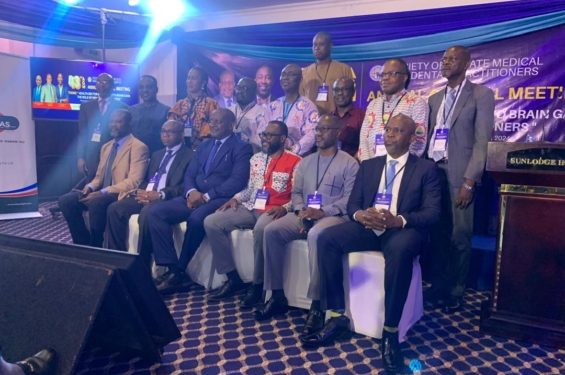President of Pharmaceutical Society of Ghana Highlights Employment Crisis for Pharmacists
Pharm Dr. Samuel Kow Donkoh, President of the Pharmaceutical Society of Ghana, has disclosed a troubling trend in the employment of pharmacists within the Ghana Health Service, revealing that no new permanent positions have been created since 2020. This situation is exacerbating the unemployment crisis among pharmacists, a critical issue given the government’s role as the nation’s largest employer.
Pharm Dr. Samuel Kow Donkoh, during the 43rd Annual General Meeting (AGM) of the Society of Private Medical and Dental Practitioners (SPMDP), expressed deep concern over the stagnation in employment for pharmacists within the Ghana Health Service. “Since the year 2020, pharmacists have not had any permanent employment in the Ghana Health Service. So if the government, being the biggest employer, has not employed any pharmacists into permanent jobs, then it is quite a worrying situation for us,” he stated.
The four-day AGM, themed “Health Sector Brain Drain to Brain Gain: The Role of the Private Practitioners,” provided a platform for stakeholders to discuss sustainable solutions to the healthcare sector’s challenges. Pharm Dr. Donkoh highlighted a critical issue: the mismatch between the increasing number of healthcare graduates and the limited job opportunities. “Brain drain is quite a worrying situation for all of us. Not just the medical doctors but the entire healthcare professionals,” he said.
With eight pharmacy institutions in Ghana graduating around 1,000 pharmacists annually, the lack of permanent positions over the past four years is leading many young professionals to seek opportunities abroad, exacerbating the brain drain. “People would want to stay and work, but the job opportunities are not available, and even when they are here, pharmacists are not adequately remunerated. These are the two factors that are pushing our members out of the country,” Pharm Dr. Donkoh explained.
To mitigate this issue, Pharm Dr. Donkoh urged the government to hire 400 to 500 pharmacists annually to ensure that every health facility in Ghana is staffed with a pharmacist. “Anywhere medicines are being dispensed, we need to make sure that there is a pharmacist. Not only will pharmacists be available in the pharmacy department, but they will also be at the various wards to provide pharmaceutical services,” he noted.
Additionally, he emphasized the role of the private sector in creating job opportunities for pharmacists. Pharm Dr. Donkoh recommended that regulations be enforced to ensure that pharmacies are staffed with qualified pharmacists and suggested that over-the-counter medicine sellers upgrade to full pharmacies.
On a related note, Perpetual Ofori-Ampofo, President of the Ghana Registered Nurses and Midwives Association (GRNMA), voiced concerns over the mass emigration of nurses, which is straining the healthcare system and increasing workloads for remaining staff. “The immigration of our colleagues is a threat to the safety of our patients and our safety as health practitioners. Their departure has caused serious gaps within the health system,” she said.
Dr. Cecilia Kakraba Quashie, President of the Ghana Dental Association, underscored the importance of mentorship in addressing brain drain. “I strongly believe that intentional mentorship is a crucial element missing in our healthcare profession. I implore each of you to take up the mantle of mentorship, guiding, and supporting at least one young professional in our various fields,” she added.
DISCLAIMER: The Views, Comments, Opinions, Contributions and Statements made by Readers and Contributors on this platform do not necessarily represent the views or policy of Homebase Television Ltd or hbtvghana.com.
Source: Ama Cromwell




